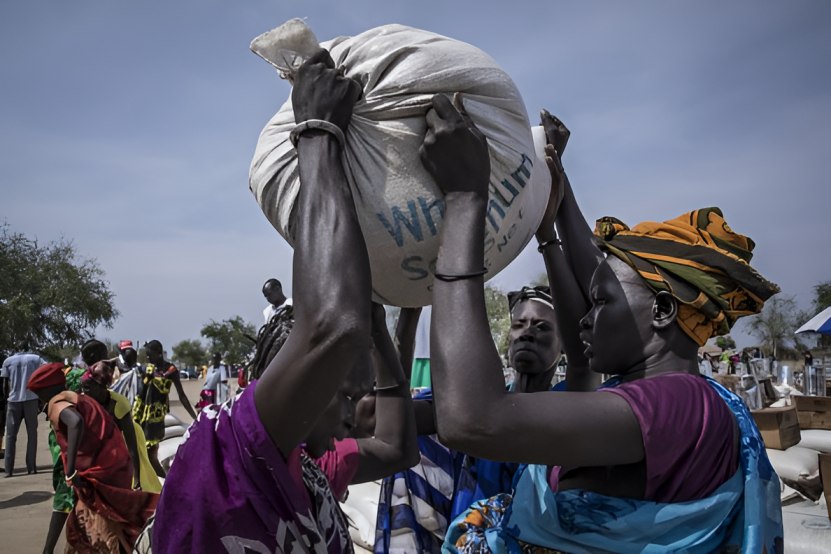In South Sudan’s Upper Nile state, over 60,000 children suffering from severe malnutrition are at imminent risk as crucial treatment supplies are running dangerously low.
The United Nations World Food Programme (WFP) and UNICEF have raised alarms about the dire situation, warning that, without immediate intervention, vital nutrition programs may come to a halt by the end of May.
Upper Nile is one of the most affected regions in South Sudan, with a staggering 300,000 children having experienced severe or moderate malnutrition over the past year.
The state already faces widespread food insecurity and is now grappling with intensified fighting along the White Nile River, the main supply route for humanitarian aid.
Since late April, no humanitarian supplies have been able to reach the state, as conflict has cut off access to vital aid.
"Children are already the first to suffer during emergencies, if we can’t get nutrition supplies through, we are likely to see escalating malnutrition in areas already at breaking point," said Mary-Ellen McGroarty, WFP’s Representative in South Sudan.
The flooding rains and ongoing violence have displaced thousands of families and worsened the spread of disease, exacerbating food shortages and the growing need for nutrition support.
If the disruption continues, WFP and UNICEF warn that the effects on the region’s youngest residents could be catastrophic.
In mid-April, a shipment of 1,000 metric tonnes of food and nutrition supplies bound for Upper Nile had to be turned back due to insecurity.
A further 3,000 metric tonnes of aid remains stuck in Bor, a key humanitarian hub, awaiting safer conditions for delivery. However, the future remains uncertain as ongoing conflict blocks passage.
Without a safe route for aid, WFP and UNICEF fear they will exhaust their remaining nutrition supplies by the end of May.
"If we are unable to get supplies through, the nutrition programs that are currently helping children may come to a standstill," McGroarty added.
"In these situations, every day makes a difference for a malnourished child."
In the meantime, aid agencies have been forced to withhold supplies, knowing that they cannot guarantee the safety of those supplies in the conflict zones.
"We have reluctantly taken the unprecedented step of holding back supplies for fear that they will not reach the children that so desperately need them, due to the ongoing fighting, looting, and disruption of the river route," said Obia Achieng, UNICEF’s Officer in Charge Representative.
Looting has already disrupted operations, with almost 2,000 cartons of life-saving nutrition supplies, roughly 26 metric tonnes, stolen in Upper Nile.
This has left nearly 1,900 children without the chance of recovery, exacerbating an already desperate situation.
The security situation and ongoing fighting have made it impossible to pre-position stocks in secure locations, further hindering the delivery of essential aid.
"If this continues, we are in danger of simply running out of supplies in counties across the state by the end of May 2025, with potentially catastrophic results for the youngest, most vulnerable children," Achieng said.
As the window to deliver life-saving aid narrows, officials have warned that children will bear the brunt of the crisis.
Without access to nutrition and health supplies, thousands of children already struggling with malnutrition will face even greater risks of illness and death.
WFP and UNICEF are urgently calling for safe and uninterrupted delivery of humanitarian supplies.
The agencies emphasize that this is a critical moment in the fight to prevent further loss of life in Upper Nile, with conditions expected to worsen unless the situation improves.
